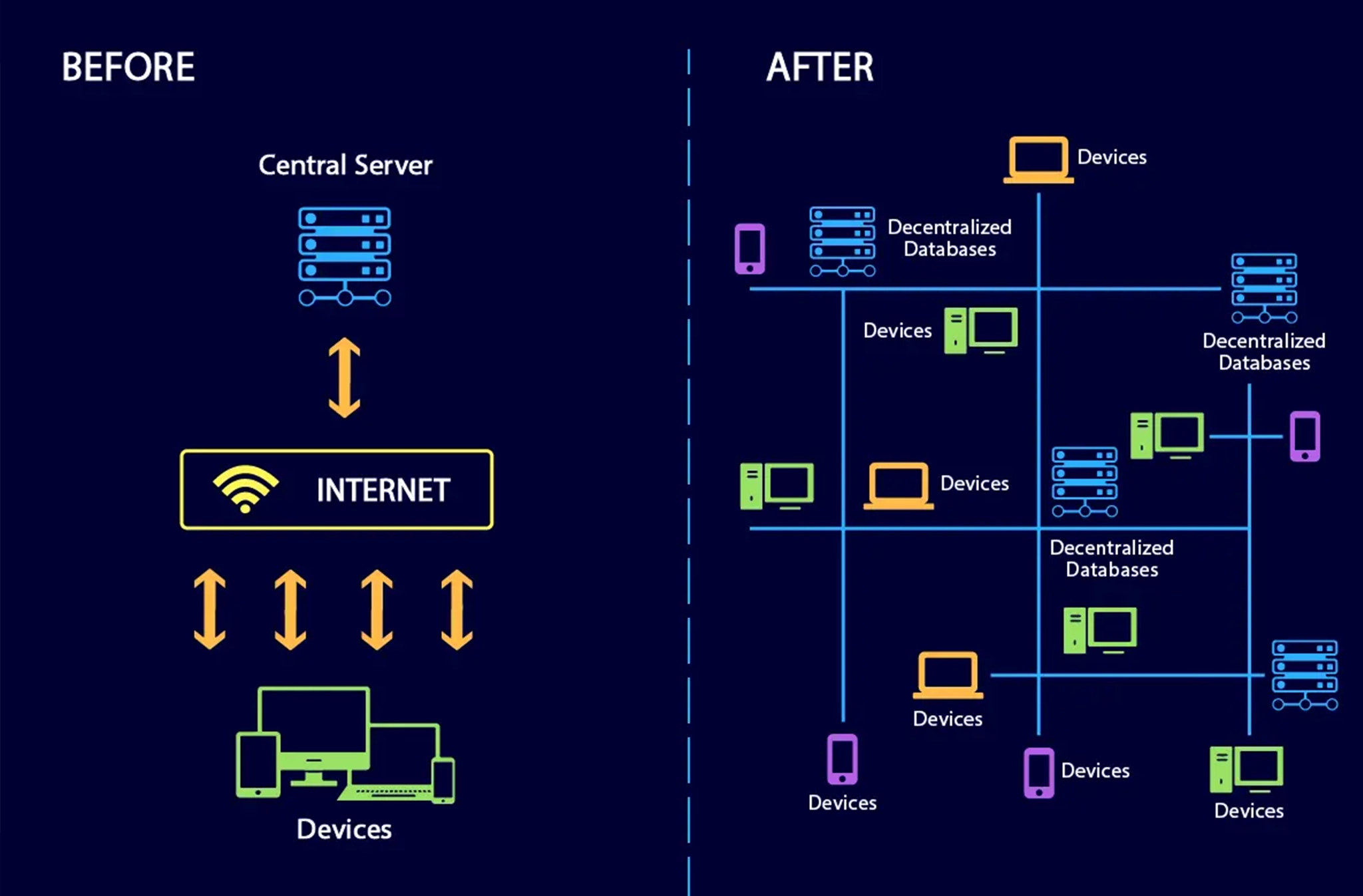Dec 7, 2022

What are the benefits of decentralization over centralized systems?
This blog post will explore the advantages of decentralization over centralized systems. Decentralization offers many potential benefits, including improved security, increased efficiency, and greater transparency. We will also discuss some of the challenges associated with decentralized systems and how these can be overcome.
Centralized vs. Decentralized Systems
Advantages of decentralization
1) Improved security:
2) Increased efficiency:
3) Greater transparency:
4) Reduced costs:
Challenges of decentralization:
1) Scalability:
2) Interoperability:
3) Governance:
Conclusion:
Best
Discover the best practices of building best product experience from millions of ready-made product graphs or build one yourself.

Intelligent
In-depth intelligence of products in the form of product stories help in achieving quality, automation and efficiency in new and existing product implementations.

Augmented
Improve and augment end to end product selection, development, integration, and operation with detailed information and AI copilots.


